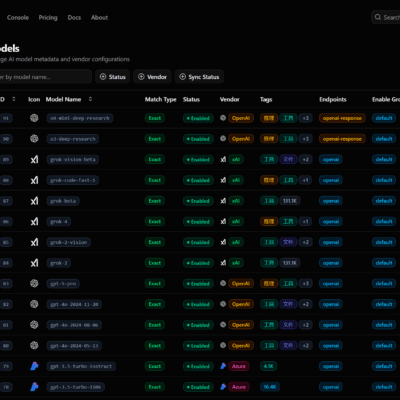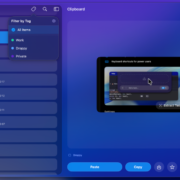
Get MORE writing done without burnout!
Hey there, fellow writer. How’s it going?
Are you trying to do the million other things that life throws at you while also finishing your book? I know I am. It’s a tough gig. With work, family and general life admin…
Finding time to write can feel like an impossible task.
I know that feeling. But here’s the thing.
It’s not about finding more hours in the day. It’s about having better systems in place. The most productive authors are not grinding harder than you. They’re just working smarter. And that’s what I want to share with you today.
Diving in…
Here’s What You’ll Learn:
- Why most authors struggle to be productive
- Time-blocking tips that actually work
- How AI tools are revolutionizing the writing game
- Building a sustainable writing routine
- Quick wins for immediate results
Why Most Authors Struggle With Productivity
Writing is tough enough in its own right. But trying to squeeze it in between everything else is like herding cats.
According to recent data, the average productive session length increased from 20 to 24 minutes, a 20% increase. It’s improved, but what does this really mean for authors and productivity?
The truth is, most people can only focus for about 24 minutes before they start to zone out or get distracted.
That’s the hard, cold truth.
If you’re like most authors, you don’t even manage 24 solid minutes of writing. You might spend hours at the computer, but most of it is spent switching between emails, social media, and a million other shiny distractions. That’s productivity-killer number one.
It’s like we spend so much time writing that we never actually write.
Raise your hand if you’ve sat down to write, only to find yourself scrolling through Instagram half an hour later.
Yep, me too.
So how do we fix this?
Simple. Use this. Let’s start at the very foundation…
Time-Blocking For Writers Is Amazing
Time-blocking is one of the easiest ways to double or triple your output.
Stop trying to find time to write, and instead schedule it in like any other important appointment. That might mean getting up half an hour earlier or making time after dinner. Whatever fits your schedule.
Here’s how to make it work for you:
- Pick your best time: Some people are morning larks; others are night owls. Figure out when you work best and protect that time.
- Start small: Don’t try to block off four hours straight away. Start with 30 minutes and gradually increase it. Consistency > Duration every time
- Protect that time: Treat your writing block like you would a dentist appointment. You wouldn’t cancel that for a random email, right? Same goes here.
- Have a specific next action in mind before you start: You can maximize your output for when you write, you need to have a clear, actionable goal in mind. Otherwise you’ll end up switching back to the internet and procrastinating.
One tip that I swear by is the Pomodoro method. Set a timer for 25 minutes and write like the wind. When it dings, take a 5-minute break and start the process again. This helps you maintain focus without burning out.
AI Tools Are Changing The Game
Here’s a tip that might surprise you…
A study found that 75% of knowledge workers agree that AI tools have helped them to save time, focus better and be more creative. In another study, writers can crank out 59% more docs by using AI writing tools.
The funny part is that it’s not about replacing your skills or ideas. It’s about removing friction that slows you down every day.
This are the biggest productivity wins:
- AI for brainstorming
- Title generation. Coming up with the perfect book title can eat up hours. A title generator for book projects uses AI to create dozens of options in minutes, letting you spend more time actually writing your story instead of agonizing over titles.
- Outline assistance
- First draft acceleration
The authors who are embracing these tools are not “cheating.” They are taking the busywork out so they can focus on what really matters – storytelling.
Building A Routine That Works
There’s one thing that’s more dangerous to writing productivity than anything else…
Inconsistency.
Those authors who only write when they “feel inspired” are never going to finish their books. The real pros write whether they want to or not. They’ve built systems that make it automatic.
So what does that look like in real life?
- Same time, same place: When you write in the same spot, at the same time every day, your brain starts to associate that time and place with creative work automatically.
- Remove decisions: Decision fatigue is a real thing. The more decisions you have to make before and during your writing session, the less mental energy you have to write.
- Track your progress: Seeing your word count climb is like a shot of motivation every time you check in. Whether you write 200 words or 2,000, tracking progress keeps you accountable and shows you’re making progress.
- Set realistic goals: If you’re juggling a full-time job and family, aiming for 5,000 words a day is a setup for failure. Set a target you can hit day in and day out, even on your busiest days. Better 500 words every day than 5,000 words once a month.
Quick Wins You Can Use Tonight
If you’re looking for some immediate results, try these productivity hacks tonight:
- Turn off notifications: Notifications are the productivity killer. Every buzz or ping on your screen yanks you out of the zone and into email reply mode. Shut off your phone, close your email and give yourself permission to focus.
- Write sprints: Set a timer for 15 minutes and write as much as you can during that time. Don’t edit, don’t backspace, don’t overthink it. Just write. You’ll be amazed at how much you can pump out.
- Batch like tasks: Do all your research in one sitting, all your editing in another. Context-switching is the enemy of productivity. It’s tempting to do one chapter, then switch to a random task. Avoid it.
- Create a shutdown ritual: At the end of your writing session, have a ritual that signals to your brain that you’re done. Helps make starting over tomorrow easier.
- Next action list: Jot down exactly what you will do next time you write before you stop. This helps avoid the “where was I?” problem and primes you for the next session.
The Truth About Productivity
There’s one productivity truth that most advice glosses over…
You can’t sprint forever.
Writing is a marathon, not a sprint. The authors who succeed over the long run are not the ones who try to write 12 hours a day for a month. Those authors burn out, go on vacation and never finish their books.
The ones who succeed are the ones who write for years, consistently.
That means taking breaks, knowing when to push and when to back off. It means building a writing practice that fits with your actual life. Not the other way around.
Sure, you’ll crush it some days and barely hit 100 words other days. That’s normal.
The key is to show up, even on the hard days, and take the little wins every time you can.
Wrapping Up
Finishing books is not about finding more time in the day. It’s about using the time you have more productively.
By putting these systems and strategies in place – time-blocking, using AI tools, establishing consistent routines and looking for quick wins – you’ll write more without the associated burnout.
Here are a few things to remember.
- Start with small, manageable time blocks
- Use AI tools to automate as much busywork as possible
- Build routines that make writing automatic
- Focus on consistency rather than perfection
- Take breaks before you need to
The authors who finish their books are not necessarily more talented than you. They’re just more consistent.
They have systems and habits that work with their lives, rather than against them.
So go ahead. Pick one of the strategies I mentioned above. Just one. Try it this week and see what happens. When it becomes a habit, add another one.
That’s how you build a writing practice that finishes books. One small win at a time.









